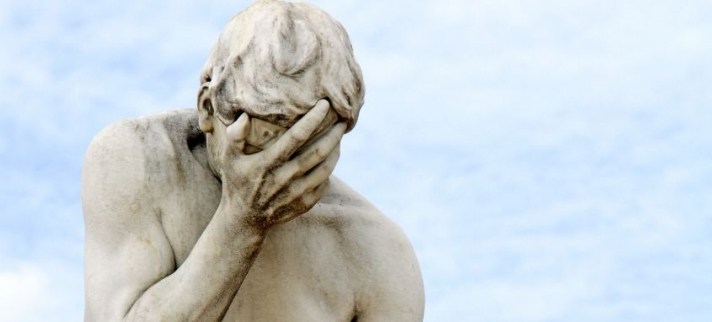Management gemsFind here some gems from our monitoring of the best publications on leadership and management

Seek inspiration from emergency situations to better manage the longer term
We often think that the operating mode that we adopt when facing a crisis is indeed effective in the short term, but is impaired when comparing to what should be done over the longer term.
José Andrés invites us to reconsider this hypothesis, in an interview given to McKinsey Quarterly. The founder of the World Central Kitchen NGO, who managed the extraordinary feat to deliver 170 million meals during the first six months of the war in Ukraine, draws a counter-intuitive and stimulating lesson from more than 10 years of work in emergency situations. What if, rather than going “back to normal” once the crisis over, we would seek to sustain what enabled us to get things moving that fast?
What emergency teaches us is that even when a problem is complex, simple solutions can be effective. The essential thing is to rapidly move into action. In Ukraine, WCK started by considering what could be done with the existing. The NGO did not set up a central kitchen with a complex logistics: it combined a network of 500 restaurants, caterers and food trucks. By targeting very short-term concrete results, even if not perfect ones, it set the basis for a large-scale change.
Source: It’s important to bring the spirit of emergencies to the long term, McKinsey Quarterly, November 2022.
ShareTo learn more :

Driving the innovation portfolio
A company cannot solely rely on incremental innovation. It also needs more radical innovations to renew itself and ensure its long-term growth. Yet, the uncertainty inherent to such projects often leads to discard them in favor of more rapidly promising initiatives.
In this podcast, Mark Maybury, Chief Technology Officer at Stanley Black & Decker, discusses the way to avoid this risk. He notably explains how he has put in place a ranking of the group innovations in six categories, defined according to their level of disruption in the market. This allows for driving the investments in the different types of innovation in a strategic manner, to ensure that the contributions expected from each of them complement each other smartly to answer both the short - and the longer - term challenges. A highly rigorous and structured approach from which you can seek inspiration to optimize your innovation strategy.
Source: Extreme Innovation With AI, podcast Me, Myself, and AI, MIT Sloan Management Review /Boston Consulting Group, March 2022.
ShareTo learn more :

Is your company culture healthy?
Did you know? Almost 90% of business leaders and financial directors think that improving their company culture would boost their financial performance. And 80% acknowledge that it is not as healthy as it should be. One employee outof ten even perceives their company culture as toxic!
The authors of this article correlated the results of numerous studies on what can lead to a nefarious company culture. They converge to point out three domains of attention:
• Managerial practices. Are some of their behaviors toxic for others? Do they display a lax attitude towards tyrannical or disrespectful behaviors?
• The social norms. What behaviors, however detrimental they may be, are well rated or considered as acceptable in daily interactions, according to the unspoken and explicit functioning rules of the organization?
• A sub-optimal work organization. Does the way in which the work is organized foster some unhealthy behaviors? A pragmatic guide to audit your company culture.
To read: How to Fix a Toxic Culture, Donald Sull, Charles Sull, MIT Sloan Management Review, September 2022.
Share
Making space for introverts
The Western world — and even more so the business world — strongly value behaviors associated to extraversion. Feeling at ease in a group, moving rapidly into action, knowing how to speak publicly and whipping up the crowds are considered as virtues. To the extent that many people with an introvert nature learn, from the youngest age, that their natural way of being is not the right one and that they should rapidly learn how to behave “as they should”.
Susan Cain reminds us that solitude is necessary for creativity, for maturing ideas, for deep thinking work. Some great and particularly influential leaders, such as Rosa Parks and Gandhi, were actually introverts. And this is no coincidence: it is noticeable that discreet people spontaneously have better listening skills and seek less to impose their own ideas. Susan Cain thus encourages us to have more balanced work modes: securing individual working time whilst resisting to the “all together” trend, and taking into account everyone’s preference instead of expecting that all abide by the dominating extravert model.
To watch: The power of introverts, Susan Cain, TED.com, March 2012.
Share
Reinstate regrets
Towards the end of her life, Edith Piaf was singing: “No, no regrets. No, I will have no regrets…” Like her, many have raised the fact of always looking forward and of knowing how to detach from the past as a life philosophy. Butis it really a good idea?
In this fascinating book, both simple and knowledgeable, Daniel Pink reinstates regrets. Indeed, they are universal. They are part of our natural range of emotions and feelings. Like every negative emotion, they hold a function. If we regret to have let a conflict go sour or to not have had the courage to take a risk that could have been rewarding, it is likely that confronting this regret, and learning its lessons, will help us make better choices later. More so, our strongest and most persistent regrets are rich in learnings. It is sometimes difficult to determine what our fundamental values are — beyond an obvious catalogue of nice principles to which everyone can only adhere. Listening to our regrets reveals what we attach a great importance to. An invitation to a promising introspection effort.
To read: The Power of Regret, Daniel H. Pink, Penguin Publishing Group, 2022.
Share